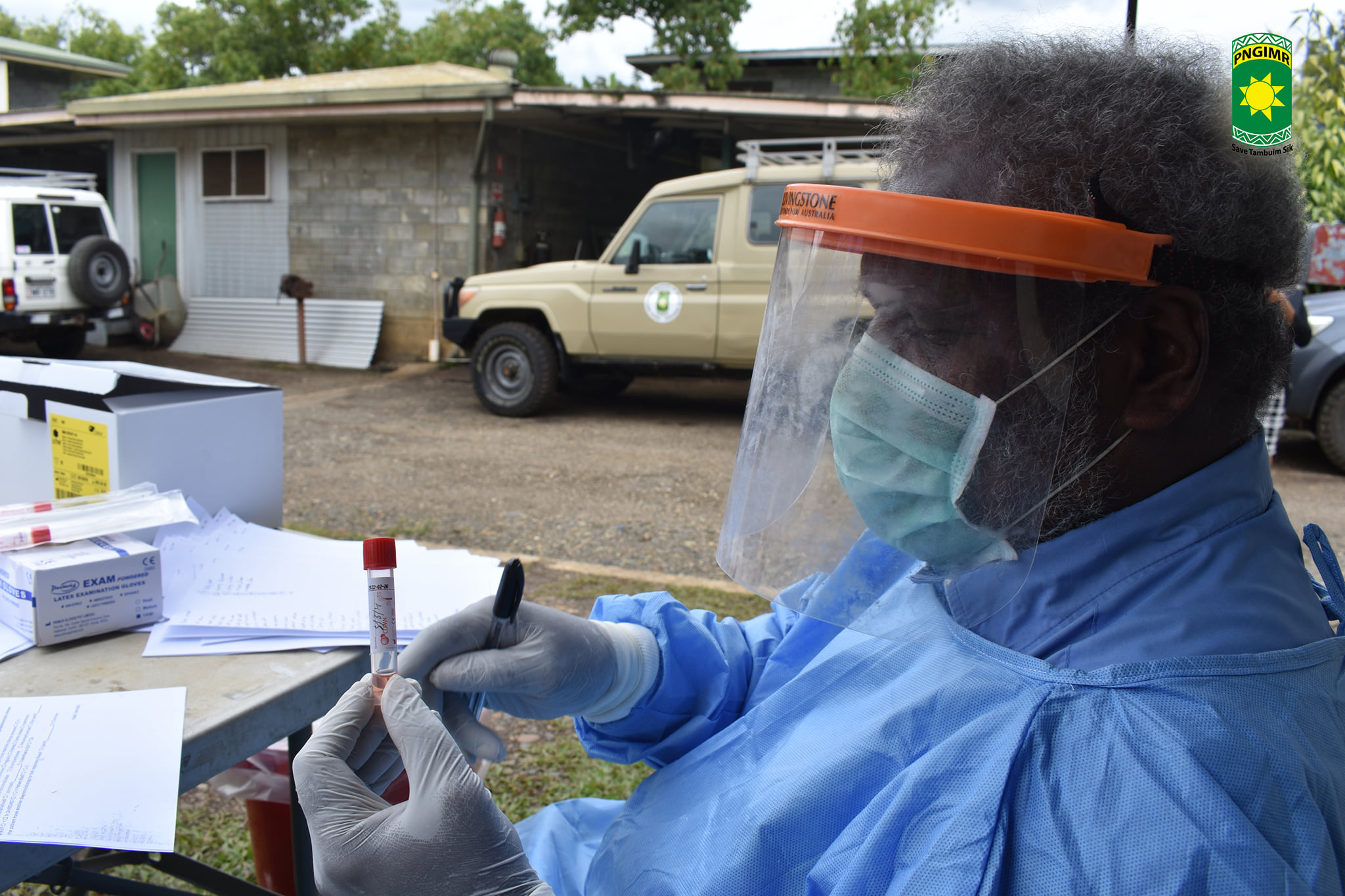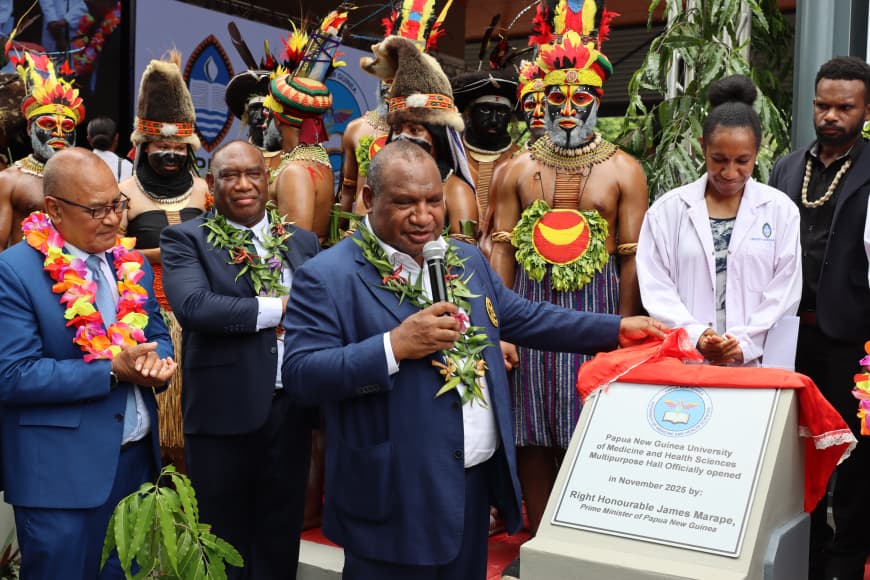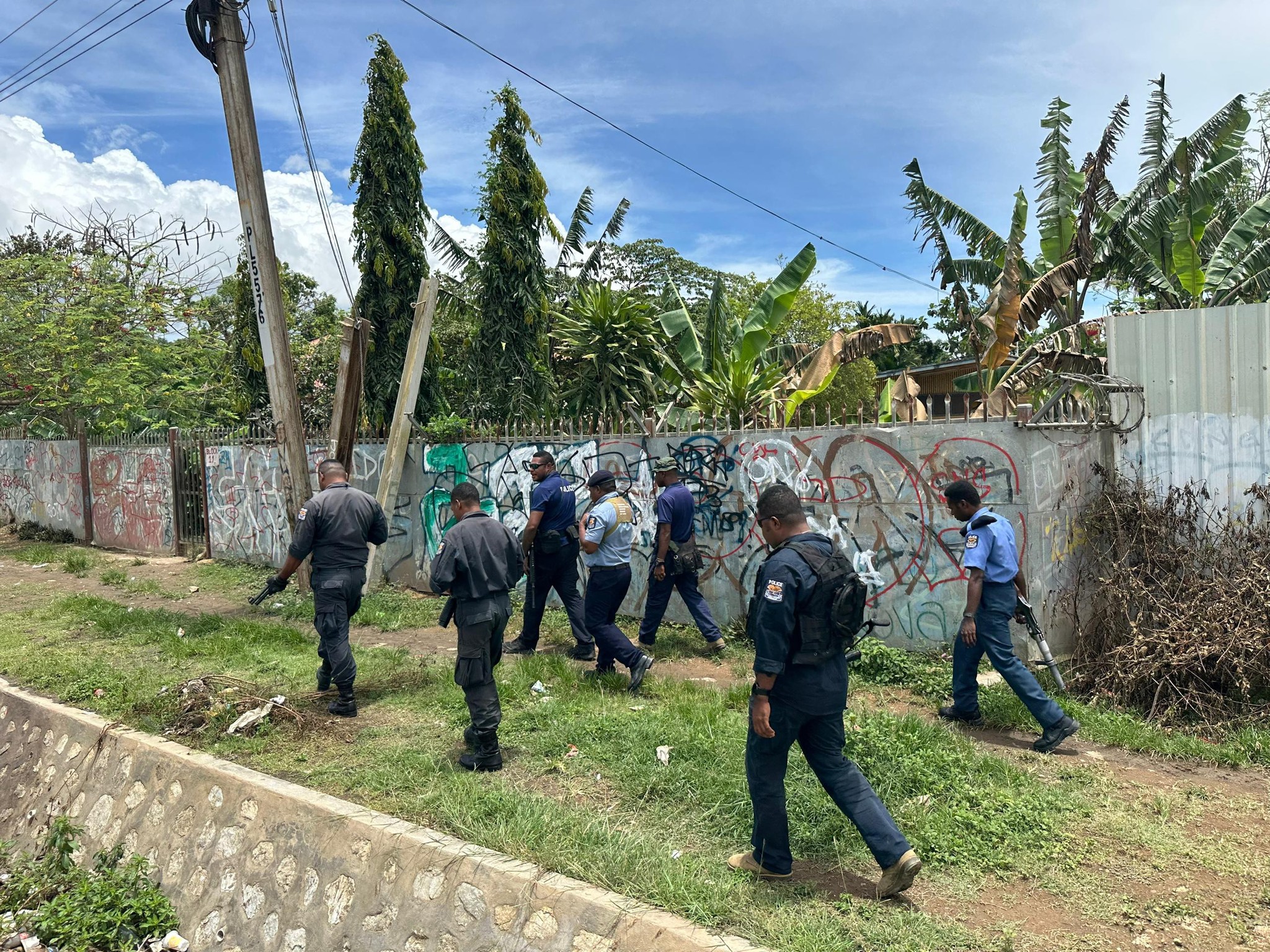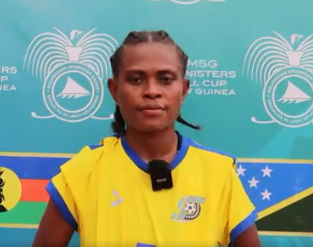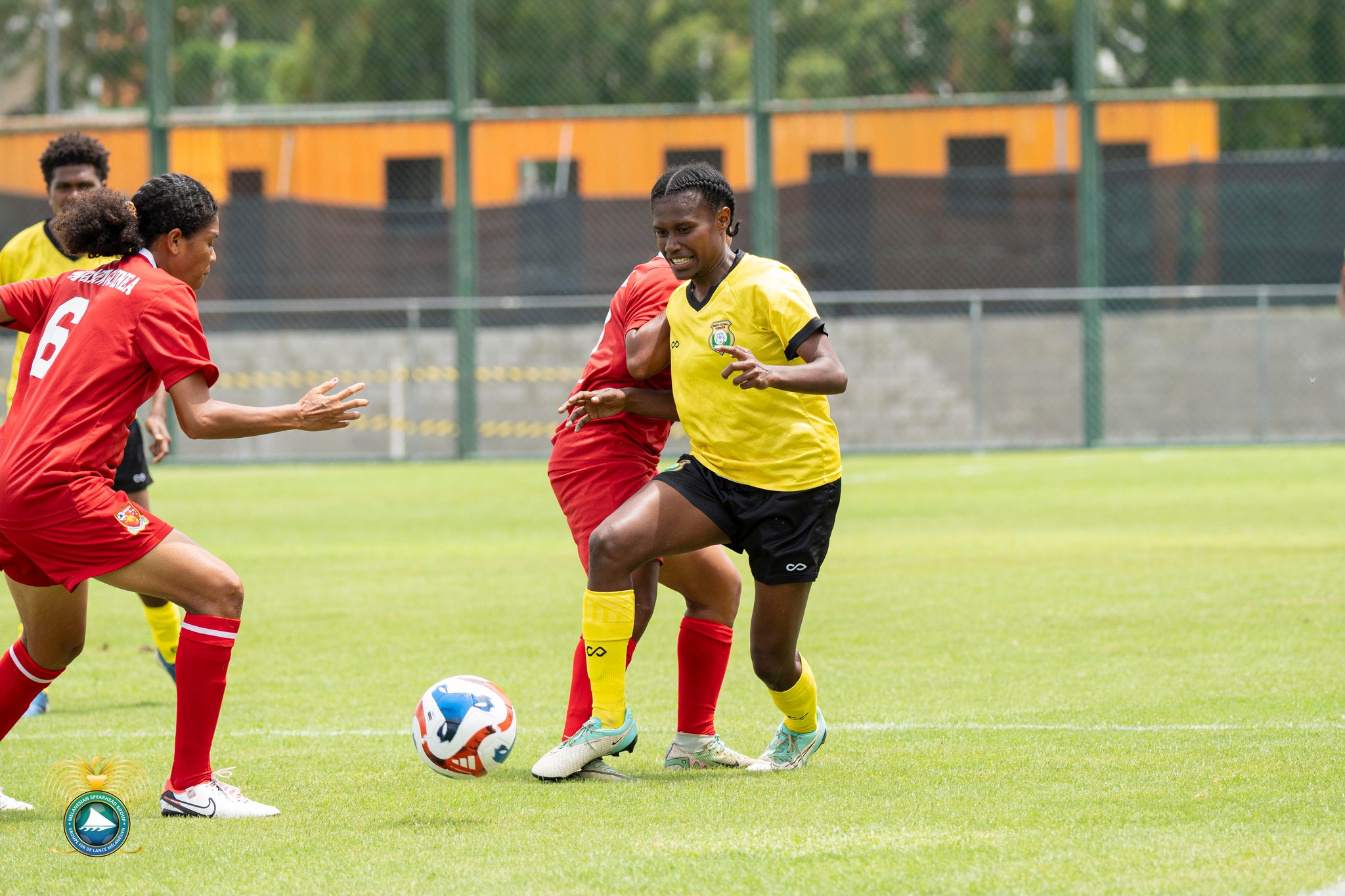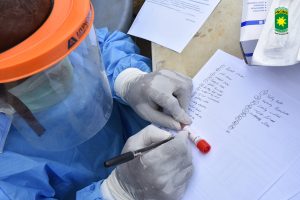 COVID-19 team collecting swabs for PNGIMR staff at the clinic area. Image courtesy of PNGIMR FB page[/caption]
To date, the only funding allocated to PNGIMR by the government of PNG for COVID-19 has been to support testing and not research.
To enable national research institutions and universities to access sustainable funding for COVID-19 and other research, the government will need to create
a governing body that is annually funded and has the capacity to screen, conduct independent review and select proposals based on scientific merit and track record.
Nevertheless, the Institute has commenced 11 research projects on preventing, testing and treating COVID-19 infections and minimizing the negative impacts of the pandemic. PNGIMR is also continuing to carry out its mandated role of conducting research into other diseases that are of public health importance to PNG.
We are proud to state that our research on the control of diseases such as malaria, elephantiasis, pneumonia, tuberculosis, polio, cervical cancer, HIV/AIDS and other sexually transmitted infections that claim the lives of countless Papua New Guineans continues to be conducted to very high standards.
The Prime Minister and I spoke by phone about his comments in the media and Prime Minister has extended an invitation for PNGIMR to visit and talk with him.
[caption id="attachment_13006" align="aligncenter" width="606"]
COVID-19 team collecting swabs for PNGIMR staff at the clinic area. Image courtesy of PNGIMR FB page[/caption]
To date, the only funding allocated to PNGIMR by the government of PNG for COVID-19 has been to support testing and not research.
To enable national research institutions and universities to access sustainable funding for COVID-19 and other research, the government will need to create
a governing body that is annually funded and has the capacity to screen, conduct independent review and select proposals based on scientific merit and track record.
Nevertheless, the Institute has commenced 11 research projects on preventing, testing and treating COVID-19 infections and minimizing the negative impacts of the pandemic. PNGIMR is also continuing to carry out its mandated role of conducting research into other diseases that are of public health importance to PNG.
We are proud to state that our research on the control of diseases such as malaria, elephantiasis, pneumonia, tuberculosis, polio, cervical cancer, HIV/AIDS and other sexually transmitted infections that claim the lives of countless Papua New Guineans continues to be conducted to very high standards.
The Prime Minister and I spoke by phone about his comments in the media and Prime Minister has extended an invitation for PNGIMR to visit and talk with him.
[caption id="attachment_13006" align="aligncenter" width="606"] Picture Courtesy of PNGIMR[/caption]
He explained his comments were taken out of context.
He intended to challenge all research groups in PNG to submit research proposals to the government for funding.
If this is to be conducted in an unbiased and scientifically sound and sustainable way, PNGIMR recommends for a government research funding body to be established similar to those in other countries.
PNGIMR has made submissions to NEC for infrastructure development in Madang and funds to maintain sentinel surveillances sites in each region of PNG.
The laboratory infrastructure will increase our capacity to conduct health research and to ensure that the outcome of these researches is translated into policy and the policy implemented to improve the health of Papua New Guineans.
[caption id="attachment_13007" align="aligncenter" width="579"]
Picture Courtesy of PNGIMR[/caption]
He explained his comments were taken out of context.
He intended to challenge all research groups in PNG to submit research proposals to the government for funding.
If this is to be conducted in an unbiased and scientifically sound and sustainable way, PNGIMR recommends for a government research funding body to be established similar to those in other countries.
PNGIMR has made submissions to NEC for infrastructure development in Madang and funds to maintain sentinel surveillances sites in each region of PNG.
The laboratory infrastructure will increase our capacity to conduct health research and to ensure that the outcome of these researches is translated into policy and the policy implemented to improve the health of Papua New Guineans.
[caption id="attachment_13007" align="aligncenter" width="579"]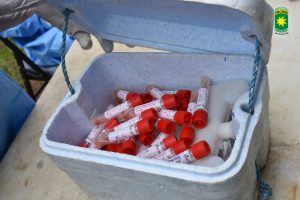 Picture courtesy of PNGIMR[/caption]
The sentinel sites will provide longitudinal data on disease trends and capture important health indicators to achieve milestones set by the government.
In addition to health impact, the PNGIMR has made significant strides in the past decade to build capacity by training research scientists, clinicians, technicians and all cadres of health research personnel to conduct public health and medical research relevant for PNG.
This investment in human capacity strengthening is proving very fruitful and these scientists are now helping with the current pandemic and conducting relevant research on other diseases.
The Prime Minister’s statements in the media are an encouragement for the Institute to communicate our research findings regularly and to access research funds through the national government as well as international competitive research grants.
[caption id="attachment_13008" align="aligncenter" width="644"]
Picture courtesy of PNGIMR[/caption]
The sentinel sites will provide longitudinal data on disease trends and capture important health indicators to achieve milestones set by the government.
In addition to health impact, the PNGIMR has made significant strides in the past decade to build capacity by training research scientists, clinicians, technicians and all cadres of health research personnel to conduct public health and medical research relevant for PNG.
This investment in human capacity strengthening is proving very fruitful and these scientists are now helping with the current pandemic and conducting relevant research on other diseases.
The Prime Minister’s statements in the media are an encouragement for the Institute to communicate our research findings regularly and to access research funds through the national government as well as international competitive research grants.
[caption id="attachment_13008" align="aligncenter" width="644"] Picture courtesy of PNGIMR[/caption]
My request now is for the government to set aside dedicated research funding, say 2% of all revenue, to be managed by the Department of Higher Education, Science, Research and Technology and/or Science, Research and Technology Secretariat to enable researchers to apply for these funds to conduct relevant research in all fields.
I would also like to invite the Prime Minister to attend and open our virtual symposium to be held on the 12th August 2021, which will highlight some of the impactful research we have conducted recently.
Picture courtesy of PNGIMR[/caption]
My request now is for the government to set aside dedicated research funding, say 2% of all revenue, to be managed by the Department of Higher Education, Science, Research and Technology and/or Science, Research and Technology Secretariat to enable researchers to apply for these funds to conduct relevant research in all fields.
I would also like to invite the Prime Minister to attend and open our virtual symposium to be held on the 12th August 2021, which will highlight some of the impactful research we have conducted recently. 